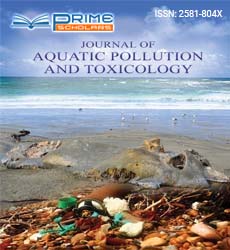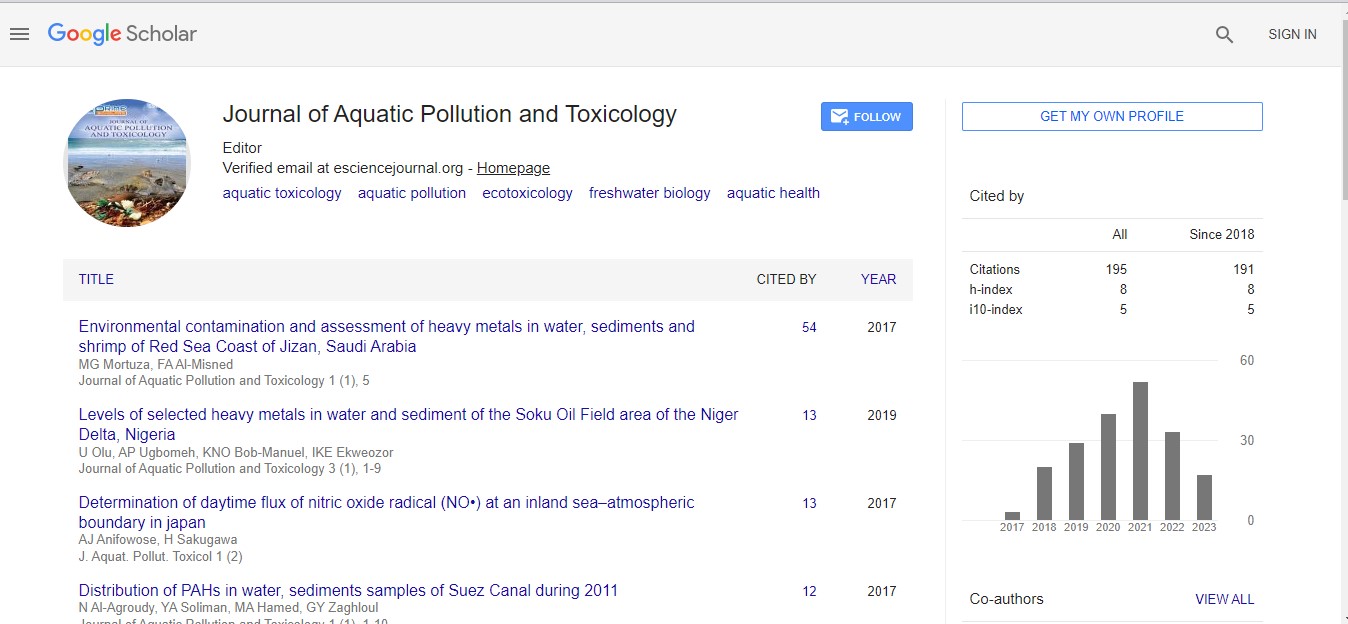Commentary - (2024) Volume 8, Issue 3
Exploring Marine Ecosystems: Vitality, Challenges, and Conservation
Ying Sun*
Department of Aquatic Science, Sichuan University, China
*Correspondence:
Ying Sun,
Department of Aquatic Science, Sichuan University,
China,
Email:
Received: 02-Sep-2024, Manuscript No. IPJAPT-24-21323;
Editor assigned: 04-Sep-2024, Pre QC No. IPJAPT-24-21323 (PQ);
Reviewed: 18-Sep-2024, QC No. IPJAPT-24-21323;
Revised: 23-Sep-2024, Manuscript No. IPJAPT-24-21323 (R);
Published:
30-Sep-2024, DOI: 10.21767/2581-804X-8.3.26
Description
The marine environment, encompassing oceans, seas, and
coastal areas, is a complex and dynamic system that plays a
crucial role in the Earth’s climate, biodiversity, and human
economies. Ocean habitats sustain diverse marine life.
Covering over 70% of the planet’s surface, marine ecosystems
are home to a vast array of life forms, from microscopic
plankton to the largest animals on Earth, such as blue whales.
Understanding the significance of marine ecosystems, the
challenges they face, and the conservation efforts required
to protect them is essential for sustaining the health of
our planet. Marine ecosystems are integral to the Earth’s
environmental and economic systems. They regulate global
climate by absorbing and storing carbon dioxide, a crucial
function in mitigating climate change. Oceans also generate
more than half of the world’s oxygen through photosynthesis
by phytoplankton, seaweed, and marine plants. Biodiversity
in marine environments is extraordinary. Coral reefs, often
referred to as the “rainforests of the sea,” support an immense
variety of species and provide vital services such as coastal
protection and tourism revenue. Mangroves and salt marshes
serve as nurseries for many marine species, protect coastlines
from erosion, and filter pollutants from the water. Additionally,
marine ecosystems contribute to human economies through
fisheries, recreation, and transportation. Overfishing depletes
fish populations faster than they can reproduce, disrupting
food chains and harming marine biodiversity. Marine pollution,
including plastics, chemicals, and oil spills, poses severe risks to
marine life. Plastic debris can entangle marine animals and be
ingested, causing physical harm or death. Chemicals and toxins
from agricultural runoff and industrial discharge can lead to
harmful algal blooms, dead zones, and long-term health impacts
on marine organisms. Rising global temperatures result in
ocean warming, which affects marine species and ecosystems.
Coral bleaching, caused by elevated sea temperatures, leads
to the loss of coral reefs and their associated biodiversity.
Additionally, ocean acidification, a result of increased carbon
dioxide absorption, impairs the ability of marine organisms
like shellfish and corals to form calcium carbonate structures.
Coastal development, dredging, and destructive fishing
practices contribute to the loss of critical marine habitats such
as mangroves, seagrasses, and coral reefs. These habitats
are essential for the survival of many marine species and
provide important ecological services. Establishing MPAs helps
safeguard critical habitats and allow ecosystems to recover
from human impacts. These areas can vary in their level of
protection, from fully protected reserves to multiple-use zones
that balance conservation with sustainable use. Implementing
sustainable fishing practices, such as setting catch limits,
protecting spawning grounds, and reducing bycatch, helps
maintain fish populations and ecosystem health. Certification
programs like the Marine Stewardship Council (MSC) promote
sustainable seafood and guide consumers towards responsible
choices. Addressing climate change through global agreements
like the Paris Agreement and investing in climate-resilient
marine research helps mitigate the impacts of warming
oceans and acidification. Raising awareness about marine
issues and fostering a sense of stewardship are vital for driving
conservation efforts. Educational programs, community
initiatives, and citizen science projects engage the public and
encourage actions that benefit marine environments. Marine
ecosystems are vital to the health of our planet and human
well-being, offering numerous environmental, economic, and
social benefits. However, they face significant threats from
overfishing, pollution, climate change, and habitat destruction.
Protecting our oceans is not just an environmental imperative
but a shared responsibility for ensuring a sustainable and
thriving world.
Acknowledgement
None.
Conflict Of Interest
None.
Citation: Sun Y (2024) Exploring Marine Ecosystems: Vitality, Challenges, and Conservation. J Aquat Pollut Toxicol. 8:26.
Copyright: © 2024 Sun Y. This is an open-access article distributed under the terms of the Creative Commons Attribution License, which permits unrestricted use, distribution, and reproduction in any medium, provided the original author and source are credited.

